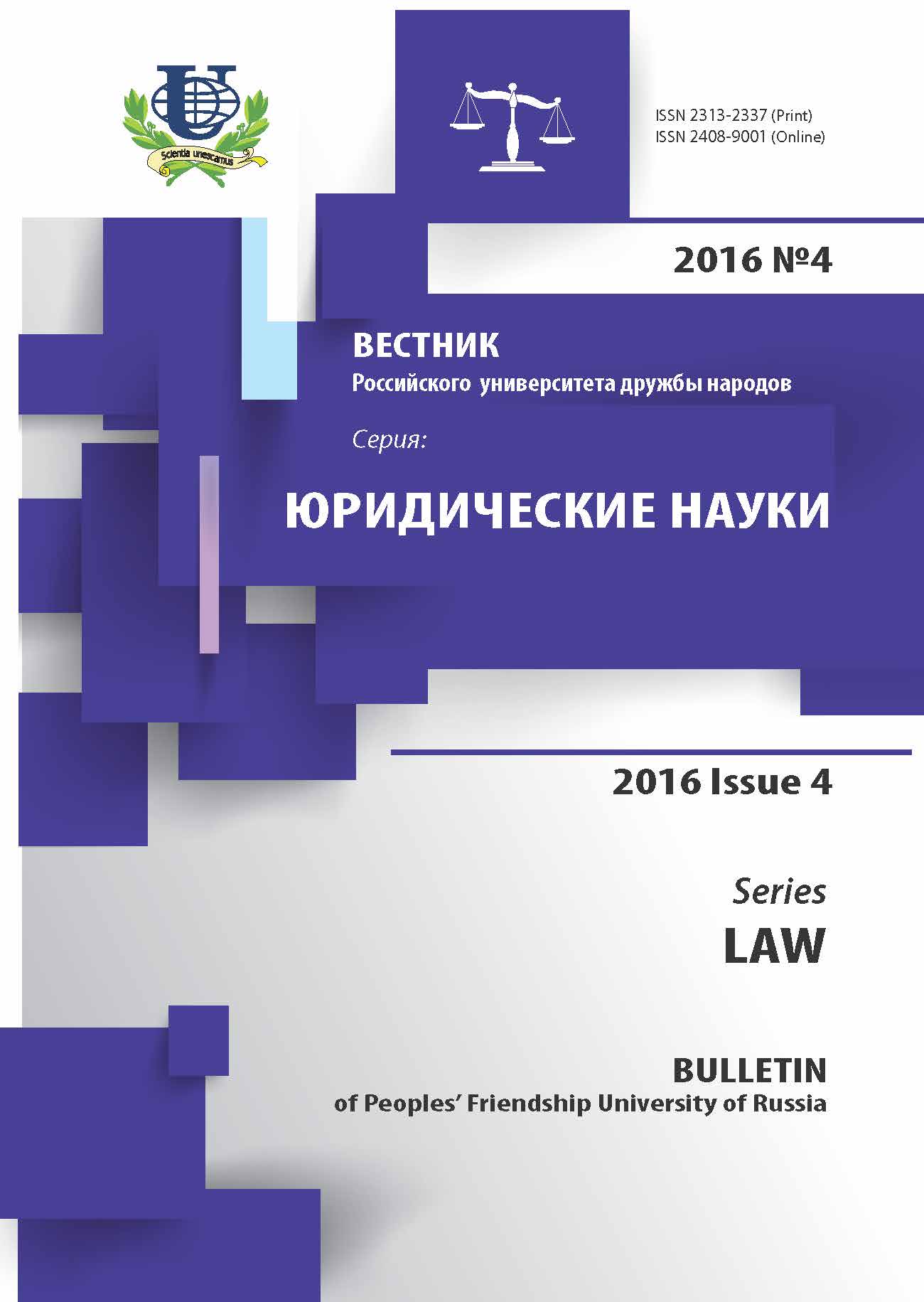Problems of the Doctrinal Interpretation of Law
- Authors: Arzamasov Y.G1
-
Affiliations:
- National Research University Higher School of Economics
- Issue: No 4 (2016)
- Pages: 9-25
- Section: Articles
- URL: https://journals.rudn.ru/law/article/view/15125
Cite item
Full Text
Abstract
The article observes the problems of understanding of legal hermeneutics and doctrinal interpretation. The author concludes that the issue of interpretation of the law has already developed into the thematic framework of the general theory of law and state, and now is a subject of a specific applied science - legal hermeneutics, which has different ways of interpreting the law. The author focuses of the definition of the object of doctrinal interpretation and its types. After carrying out the analysis the author concludes that the doctrinal interpretation of the objects is very diverse and does not mean only interpretation of the law. Almost all the elements of the legal system can be subjects to scientific analysis and forecasting. In contrary to the opinion affirmed in the literature on the theory of law and state that the doctrinal interpretation is a kind of informal interpretation of the law, the author makes a conclusion that the doctrinal interpretation can be official, unofficial and officious i.e. it can have the semi-official character, such as the conclusion to bills. The author considers that despite the fact that in modern Russia the doctrine is not recognized as an official source of law it has a tremendous impact on the legislator, in particular, his legal mind, his psychology foundations. The best samples of scientific doctrines presented in the first chapter of the Constitution. E.g. it is Montesquieu’s theory on the separation of powers, idea of the federal structure of the Russian state, ideas of a secular and democratic state, which withstood a major test of time. This is idea of Lorenz von Stein of the social character of the state, too. After considering the various approaches to understanding the sources of law the author comes to the conclusion that if the interpretation of the results is prepared by a famous legal scholar, is set out in the field of a recognized theory, a certain concept, the legal paradigm, it must be recognized as the legal source and one needs to refer to it in resolution of legal problems in the administration and courts of various levels.
About the authors
Yuriy G Arzamasov
National Research University Higher School of Economics
Email: UArzamasov@hse.ru
Faculty of Law 3, B. Trehsvyatitelsky lane, Moscow, Russian Federation, 109028
References
















